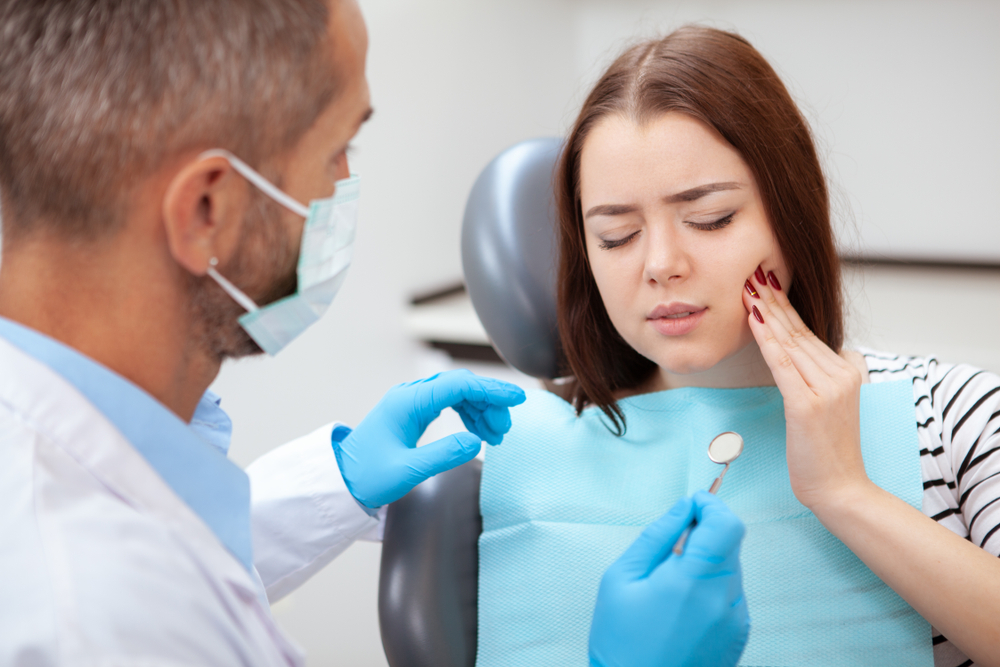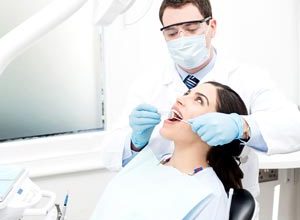When is It a Dental Emergency?

A dental emergency usually occurs when you experience severe pain, bleeding, swelling, or a knocked-out tooth. These are signs that immediate dental care is needed.
Dental emergencies can occur at any time and can be caused by accidents, injuries, or sudden onset of pain or discomfort. It is important to recognize the symptoms of a dental emergency and seek prompt treatment to prevent further damage or complications.
We will discuss some common dental emergencies and what steps you should take when faced with a dental emergency. Dental emergencies can be distressing and can happen unexpectedly. Understanding when it is considered a dental emergency is crucial to ensure you receive timely treatment and prevent further complications. Whether it’s severe toothaches, bleeding, or a knocked-out tooth, recognizing the signs and taking immediate action is essential. This article provides valuable information on common dental emergencies and the necessary steps to take during such situations.
Understanding Dental Emergencies
Recognizing the signs of a dental emergency is important in order to seek prompt treatment and alleviate pain and discomfort. Many dental emergencies are unexpected and can happen at any time.
| Common dental emergencies | Signs and symptoms |
| Toothache | Persistent or severe toothache, particularly when accompanied by swelling or fever. |
| Cracked or broken tooth | Pain, sensitivity, or sharp edges on the affected tooth. |
| Knocked-out tooth | Complete tooth loss due to trauma or injury, along with bleeding and pain. |
| Lost filling or crown | Dislodged dental restoration, leading to sensitivity or discomfort. |
| Broken braces or wires | Sharp or protruding wires causing mouth sores or difficulty in speaking or eating. |
It’s important to note that not all dental problems qualify as emergencies. Minor toothaches or tooth sensitivity that resolves quickly may not require immediate attention. However, if you experience severe pain, bleeding, or traumatic tooth loss, it’s crucial to seek urgent dental care. Ignoring a dental emergency can lead to further complications and potentially worsen the situation.
Types Of Dental Emergencies
Types of Dental Emergencies
When it comes to dental emergencies, it is important to know what situations warrant immediate attention. Here are some common types of dental emergencies:
Fractured or broken tooth: If you have a fractured or broken tooth, it is essential to seek dental care as soon as possible. This includes a tooth that is chipped, cracked, or completely broken.
Knocked-out tooth: If a tooth has been completely knocked out, time is of the essence. To increase the chances of saving the tooth, it should be reimplanted within 30 minutes. Handle the tooth by the crown and avoid touching the root.
Severe toothache or abscess: A severe toothache or abscess should not be ignored. These symptoms indicate an underlying issue that requires immediate attention to alleviate pain and prevent further complications.
Lost filling or crown: If you lose a filling or crown, it is considered a dental emergency. Without the restoration, the affected tooth is susceptible to further damage or infection.
Injury to the mouth or jaw: Any injury to the mouth or jaw should be evaluated by a dental professional. This includes lacerations, fractures, or dislocations that may require treatment or stabilization.
Remember, seeking prompt dental care for a dental emergency can help prevent further complications and ensure the best outcome for your oral health.
Immediate Steps For Dental Emergencies
In case of a dental emergency, it is crucial to know the immediate steps to take. The first and most important action is to contact an emergency dentist as soon as possible. Time is of the essence when it comes to saving your teeth.
If you have experienced a knocked-out tooth, carefully handle it by the crown and avoid touching the root. Rinse the tooth gently with water and try to reinsert it back into the socket if possible. If that is not feasible, keep the tooth moist by placing it in a container of milk or saliva until you can reach a dentist.
To manage tooth pain at home, there are a few remedies you can try. Rinse your mouth with warm saltwater to reduce inflammation and relieve pain. Applying a cold compress to the affected area can also provide temporary relief. Additionally, over-the-counter pain relievers can help alleviate discomfort until you can receive professional dental care.
Remember, in a dental emergency, acting quickly and contacting an emergency dentist is crucial for the best possible outcome. By taking the appropriate steps, you can increase the chances of saving your teeth and preventing further damage.
When To Seek Immediate Dental Care
When to Seek Immediate Dental Care:
If you experience any of the following symptoms, it may be considered a dental emergency and you should seek immediate dental care:
| Excessive bleeding | Severe facial swelling | Difficulty breathing or swallowing | Persistent high fever |
|---|---|---|---|
| If you are experiencing excessive bleeding from your mouth, it could be a sign of a serious dental issue and requires immediate attention from a dentist. | Severe facial swelling, especially if accompanied by pain, can indicate an infection or injury that needs urgent dental care. | Difficulty breathing or swallowing may be a result of a dental problem affecting your airways, and it is important to seek immediate dental care to avoid any potential complications. | A persistent high fever could be a sign of an underlying infection, and it is vital to consult a dental professional as soon as possible. |
How To Prevent Dental Emergencies
When it comes to dental emergencies, it is important to know when to seek immediate dental care. If you experience severe tooth pain, swelling, or bleeding, it may indicate an emergency situation. Other signs include a knocked-out tooth, a loose tooth, or a broken tooth. In such cases, it is crucial to contact your dentist as soon as possible.
Preventing dental emergencies is always better than dealing with them. By maintaining good oral hygiene, you can reduce the risk of tooth decay and gum disease, which can lead to emergencies. Brushing your teeth twice a day, using fluoride toothpaste, and flossing daily are essential habits to keep your teeth and gums healthy.
If you participate in physical activities such as sports, wearing a mouthguard can help protect your teeth from injuries. Mouthguards are beneficial in preventing tooth fractures and dislodgment. Additionally, avoiding bad habits such as chewing on ice, opening packages with your teeth, or using your teeth as tools can help prevent dental emergencies.

Credit: www.excellentdentalspecialists.com
The Importance Of Prompt Dental Care
When a dental emergency strikes, it’s crucial to seek immediate care to prevent further damage and complications. Prompt action can make a difference in saving a knocked-out tooth and relieving severe pain and discomfort.
Accidents can happen at any time, resulting in a knocked-out tooth. If this occurs, it’s important to act quickly. Try to hold the tooth by the crown and gently rinse it with water, but avoid scrubbing or removing any attached tissue. Place the tooth back into its socket if possible, or keep it in a container of milk or saliva until you can reach a dental professional. Time is of the essence for the highest chance of successful reimplantation.
Severe pain and discomfort can also be indicators of a dental emergency. If you experience unbearable tooth pain, it’s crucial to seek immediate dental care. Ignoring the pain can lead to the progression of serious dental issues. A timely visit to the dentist can provide relief and prevent further complications.
Frequently Asked Questions Of When Is It A Dental Emergency?
When Should I Go To The Er For My Teeth?
If you experience severe tooth pain, bleeding, swelling, infection, or a knocked-out tooth, it’s time to go to the ER for your teeth.
Will The Er Do Anything For Tooth Pain?
No, the ER will not specifically treat tooth pain. It is best to visit a dentist to address tooth pain.
When Should I Be Worried About A Toothache?
If you experience intense or persistent toothache, it is important to be concerned. Toothaches could indicate dental issues like cavities, infections, or tooth damage. Prompt dental evaluation can prevent further complications and relieve pain.
Is A Cracked Filling An Emergency?
Yes, a cracked filling can be considered an emergency. It can lead to sensitivity, pain, or further damage. Contact your dentist immediately for an examination and prompt treatment to prevent complications.
Conclusion
Determining when a dental issue requires immediate attention is crucial for maintaining oral health. By recognizing signs such as severe pain, bleeding, swelling, or injury, individuals can take prompt action and seek professional help. Neglecting dental emergencies can lead to further complications, including infections or permanent damage.
Being aware of what constitutes as a dental emergency empowers individuals to make informed decisions about their oral care and ensures timely treatment. Prioritizing oral health and addressing emergencies promptly is vital for a healthy smile.






One Comment